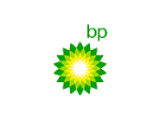Our recent article explored blue ocean leadership strategy, a method of redefining the way organisations approach management and leadership.

The findings of these two business theorists were that many business sectors are comprised of red oceans – a red ocean is defined as a highly competitive market, where rival organisations attempt to attract competitor’s market share by fighting for the same set of defined and known customers.
We analyse some of the best blue ocean strategy examples of recent times in the energy, natural resources, chemicals, and infrastructure industries.
Global energy corporation ONGC, short for Oil and Natural Gas Corporation Limited, is an Indian multinational crude oil and gas corporation. It’s been ranked as the number-one energy company in India, and is official property of the Indian government.
It has the largest volumes in terms of the percentage share of petroleum production in India. Its closest competitor, Oil India Limited (OIL), is also a public sector organisation. Together, they make up more than 70 per cent of India’s oil market. The remainder of the market is comprised of smaller private companies.
ONGC have quickly become a world leader in workflow speed and management in their highly complex industry; no surprise, when you consider how the oil and gas industry is heavily reliant on hugely complex pieces of technology. ONGC have managed to navigate the choppy waters of the competitive fossil fuel market to emerge as a beacon of light, for the efficiencies that can be created in this sector through cutting-edge technological innovations.
But just what has facilitated this development for the company? The answer is blue ocean strategy. Through following a crystal clear blue ocean strategy, the organisation was able to implement an innovative business model to send a wave of blue ocean energy throughout their organisation. ONGC focussed on innovative approaches to R&D and enhanced oil recovery. This special method of oil extraction can remove 30 to 60% of the oil to be found in a reservoir, which is much more efficient than primary or secondary recovery, which extracts only 20-40% of a reservoir’s oil in comparison.
Through this uplift in efficiency, ONGC were able to initiate a blue ocean shift for their organisation.
However, in such a competitive industry they can never be totally out of troubled waters. In an ever-increasing carbon-conscious business environment, and with the limited shelf life of the natural resources industry, ONGC are only going to continue to drive success if they consistently pursue differentiation and low-cost efficiencies.
As smart manufacturing experts across ENRI, including oil and gas, mining, metals and cement and life sciences, Rockwell automation collect a lot of data. They must collect data extremely efficiently in order to remain one of the most valuable players in the automation ENRI sector.
Smart manufacturing means Rockwell Automation works to create new connected technologies which can communicate with other machines, in order to build more interconnected enterprises.
Rockwell have made use of the Internet of Things – a system of interconnected computers and machines, with the ability to transfer data between components – to effectively digitise oil fields.
This has allowed them to connect their disparate upstream (exploration and production), midstream (gathering, processing and storage) and downstream (manufacturing and customisation) operations.
Smart devices have been added to a range of machines, including wellheads to compressors and pump stations, giving oil refineries more information than they’ve ever had access to. Rockwell have also developed wireless technology and remote control systems and dashboards which can be easily interpreted, thus improving speed of taking readings, as well as speeding up communications and action across oil and gas enterprises using their technology.
This wave of blue ocean change is sweeping through the oil industry, creating huge productivity surges for their clients.
The Gulf of Mexico oil spill in 2010 was disastrous for the oil and gas industry. The effects of this spill, which had such a damaging environmental impact, are still being felt by an industry in flux.
The Gulf of Mexico oil spill took place on 20th April, 2010, and was the result of an explosion which led to a fire on the Deepwater Horizon submersible Offshore Drilling Unit. It caused 11 deaths and multiple injuries, as well as the wider-felt environmental impact of the oil spill, as gallons of oil churned out into the open ocean. It is considered the second biggest environmental disaster in US history after the great Dust Bowl of the 1930s.
Obviously, the fallout of the oil spill deeply affected the reputation and profitability of Transocean, BP and Cameron International – the parties responsible. However, its impact has been felt across the oil and gas sectors beyond these major players. The most widely felt knock-on effect of the oil spill is reduced trust in oil and gas companies by the public.
The lead up to the disaster involved failures on many levels, and requires a focused examination of health and safety, security and environmental risks and policies. All of these factors clearly need drastic and continuous upheaval, to prevent such significant disasters ever happening again.
These industry wide changes require complex risk assessments that cross organsational boundaries, including various E&P companies – exploration and risk – that’s why may oil and gas industry experts recommend systematic organisational reforms to HSSE for companies wishing to secure long term survival and growth in this competitive shark-infested red ocean.
A blue ocean health and safety shift can help companies in the oil and gas industry prevent potential environmental disasters, restore the reputation of the industry and regain the trust of consumers.
Mergers and acquisitions, when planned carefully, can open up a blue ocean shift in your industry. By providing your organisation with previously unheard-of technology and resources, an acquisition is an ideal opportunity to diversify your business in your sector.
| Red Ocean Strategy | Blue Ocean Strategy |
| Compete in an existing market space | Establish own market space |
| Beat the Competition | Make competition irrelevant |
| Exploit existing demand | Capture and create new demand |
| Make the value-cost trade-off | Break the value-cost trade-off |
| Align the whole system of a firm’s activities with its strategic choice of differentiation or low cost | Align the whole system of a firm’s activities in pursuit of differentiation and low cost |
Consideration points:
If you are ready sail into the clear waters of uncharted territory, in a market without competition, you can unlock substantial growth potential for your organisation.
We can help you find the insight you need by connecting you with a leading expert in whatever niche you are focusing on from the Energy, Natural Resources, Chemicals or Infrastructure industries.
Our direct consulting solutions give our clients valuable insights into overcoming their business challenges. Our use cases give you an idea of the areas we have been able to help previous clients with, whether you are interested in innovation, automation or revenue growth.
Tell us about your business challenge or a particular type of knowledge/expertise you require.
Within 48 hours we present a customised shortlist of Experts, specifically matched to your project.
Connect directly with selected Experts in whichever way works best for you.
Transfer Experts' unbiased, practitioners' perspectives into actionable plans that drive business growth.
Head of Strategy and New Ventures
Digital Transformation Program Lead
Natural Resources Business Development Director

VP, Strategy

"Pangea SI is the only platform dedicated to helping businesses access the information they need to accelerate their decarbonisation and energy transition initiatives in an economically viable way."
Pangea SI's on-demand consulting platform has transformed the results of businesses worldwide.









